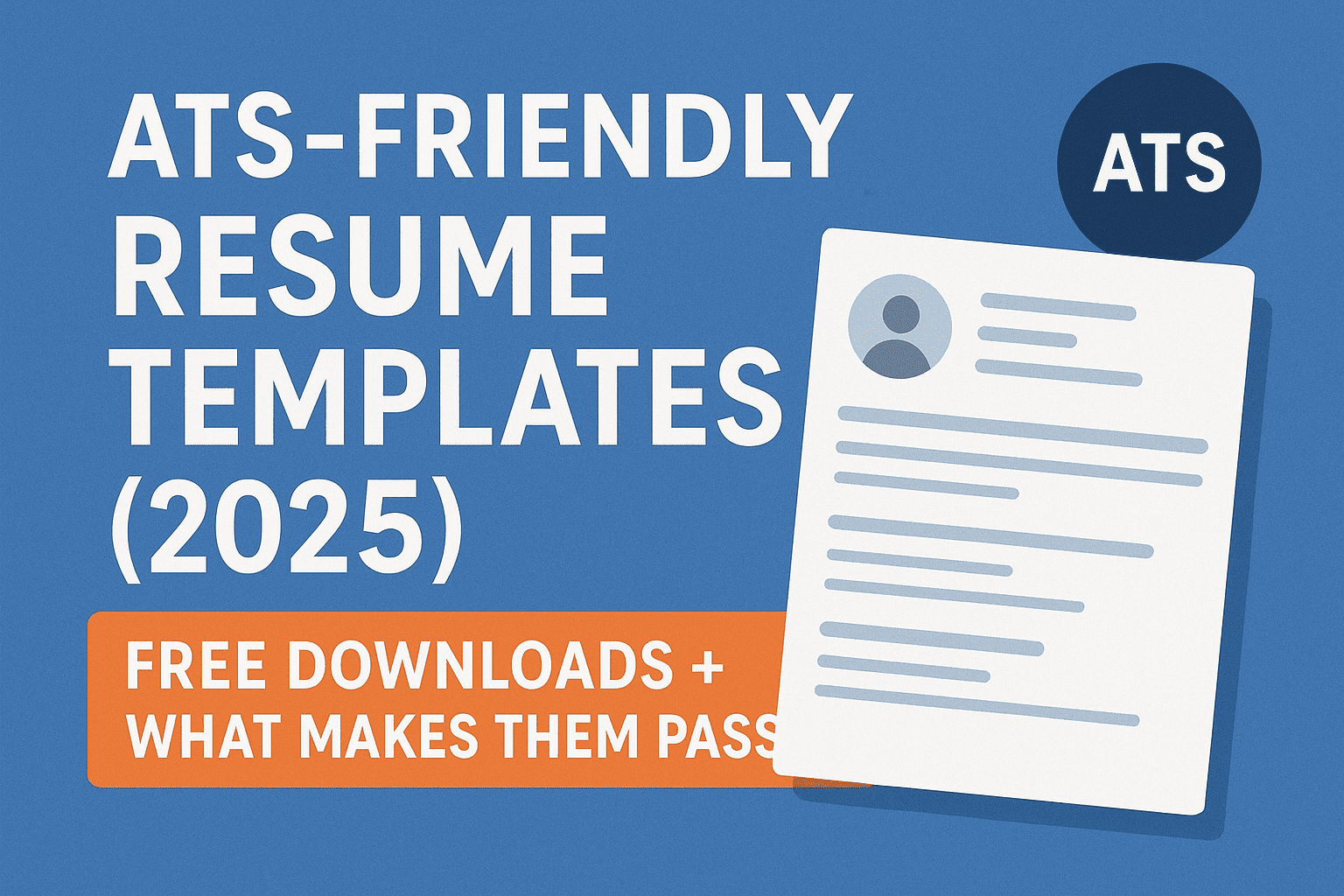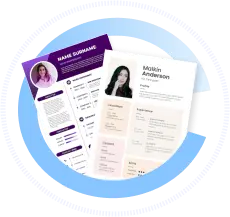ATS-Friendly Resume Templates (2025): Free Downloads + What Makes Them Pass
An ATS-friendly resume template is designed to be easily parsed by Applicant Tracking Systems (ATS), ensuring your resume gets seen by human recruiters. These templates avoid complex layouts and use clean text layers to pass ATS scans without errors.
| What to Do (Short Checklist) |
|---|
| Use simple, clear formatting |
| Avoid tables, columns, images, headers/footers |
| Use standard section headings |
| Save and submit in ATS-compatible formats (DOCX, PDF) |
| Test resume parsing before applying |
How ATS Parse Resumes Today
Applicant Tracking Systems scan resumes by reading the text layers embedded in files, breaking down information into specific fields such as name, contact, skills, work experience, and education. However, ATS can trip up on:
- Complex formatting like tables and columns
- Embedded images or graphics
- Headers and footers that hide text
- Non-standard fonts or unusual characters
Successful parsing means the resume text is extracted accurately to be ranked against job keywords. That’s why the resume format matters as much as the content for ATS success.
ATS-Friendly Resume Templates (2025) — Core Principles
To maximize your chances of passing ATS, your resume template should follow these principles:
- Simple Layout: Single-column, clear hierarchy with standard headings (e.g., Work Experience, Education)
- Readable Fonts: Use common fonts like Arial, Calibri, or Times New Roman
- Standard File Formats: DOCX is preferred; PDFs can be used if ATS-compatible
- Text Over Graphics: Avoid images, icons, or logos that ATS cannot read
- Keyword Integration: Naturally embed relevant keywords from the job description
- Consistent Formatting: Use bullet points, avoid text boxes or columns
Common Mistakes to Avoid
Here are the usual pitfalls job seekers face with ATS-friendly resumes:
- Tables and Columns: Many ATS fail to parse content inside cells or side-by-side columns
- Images and Logos: Visual elements get ignored or cause parsing errors
- Headers and Footers: Important details placed here may be skipped
- Uncommon Fonts and Symbols: Special characters can confuse ATS software
- Fancy Formatting: Colors, shading, and text boxes can obscure content
Decision Aids
Resume Template Selection Checklist:
- Is the layout single column?
- Are section headings standard and clear?
- Are fonts simple and readable?
- Does the file format comply (DOCX or ATS-friendly PDF)?
- Are images, tables, and text boxes avoided?
File Export Decision Tree:
- Start with DOCX template → Test in parsing tool → If errors, simplify formatting → Save as DOCX or PDF → Final parse test before applying
How to Test Your Resume (Parsing Checks)
To ensure your resume is ATS-friendly:
- Upload your resume to free ATS parsing tools online.
- Check if all sections, keywords, and contact info are recognized.
- Review for missing or jumbled text.
- Adjust formatting if parsing errors are found.
- Repeat testing until the resume parses cleanly.
FAQ
Q: What is an ATS-friendly resume template?
A: It’s a resume layout that ATS can easily read and parse without errors, increasing your chances of moving past automated screening.
Q: Which file format is best for ATS?
A: DOCX is preferred, but some ATS handle PDF well if saved correctly.
Q: Can images or graphics be included?
A: No, they often cause parsing errors and should be avoided.
Q: How do I include keywords without keyword stuffing?
A: Integrate relevant job-specific keywords naturally within your work experience and skills sections.
Start with an ATS-Friendly Template → Build Now
Use our tested templates and builder tools to craft a resume that passes ATS smoothly and gets you noticed. Make your next job application count with confidence in 2025.


